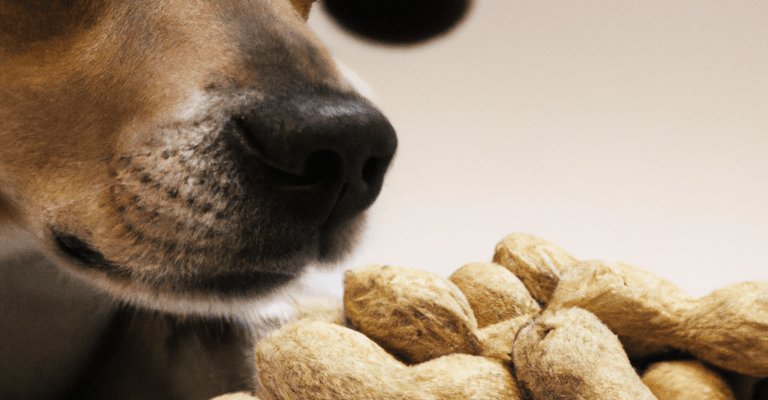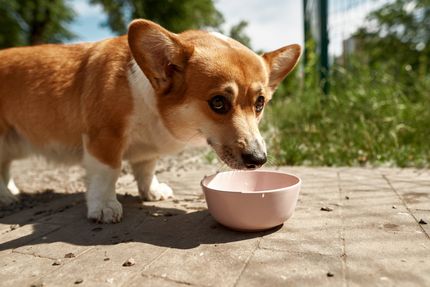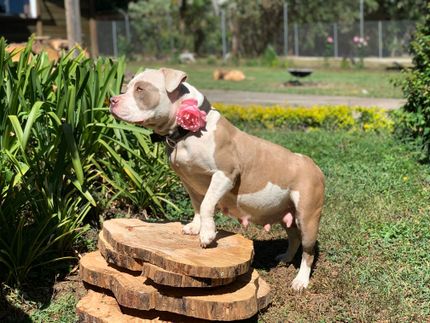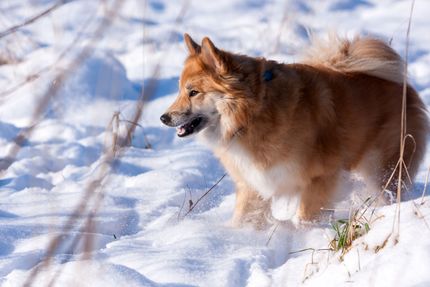Peanuts can be both a tasty treat and a potential source of danger for dogs. If you want to offer your four-legged friend peanuts, there are some important points to bear in mind.
The basics: peanuts and dogs
Dogs are generally allowed to eat peanuts. They contain healthy fats, proteins and various vitamins that can also be beneficial for your dog. But caution is advised: Peanuts must be unsalted and preferably in raw form. Roasted peanuts or peanut products with additives such as salt, sugar or spices should be avoided as they can be harmful to your dog.
Benefits of peanuts for dogs
Healthy fats and proteins: Peanuts are rich in unsaturated fats, which are beneficial for cardiovascular health. The fats contained in peanuts help to keep your dog's coat shiny and skin healthy. Proteins play an essential role in building and maintaining muscle tissue. For active dogs or dogs that are recovering, the extra protein in peanuts can be a valuable addition to their diet.
Vitamins: Peanuts provide a source of important vitamins such as vitamin E, niacin (vitamin B3), and folic acid (vitamin B9). Vitamin E is a powerful antioxidant that helps maintain healthy skin and a healthy immune system. Niacin supports the function of the nervous system and helps to obtain energy from food. Folic acid is important for cell division and is especially recommended for pregnant bitches to promote puppy health.
Disadvantages of peanuts for dogs
Allergy risk: Like humans, dogs can also have allergic reactions to peanuts. Symptoms of an allergy can include skin rashes, itching, swelling or, in the worst case, anaphylactic shock. When giving your dog peanuts for the first time, start with a small amount and watch him carefully for signs of an allergic reaction.
Choking hazard: Whole peanuts can be particularly dangerous for small dogs or puppies. They could be accidentally inhaled, which can lead to respiratory distress or even complete airway obstruction. To minimize the risk, you should either lightly crush peanuts or choose peanut butter (without added sugar and xylitol) as an alternative.
Digestive problems: Although peanuts are rich in nutrients, they can be difficult to digest in large quantities and can lead to gastrointestinal problems. Symptoms such as bloating, diarrhea or vomiting can occur if a dog eats too many peanuts at once. This is partly due to the high fat content, which can put a strain on digestion, especially in dogs with sensitive stomachs or those prone to pancreatitis.
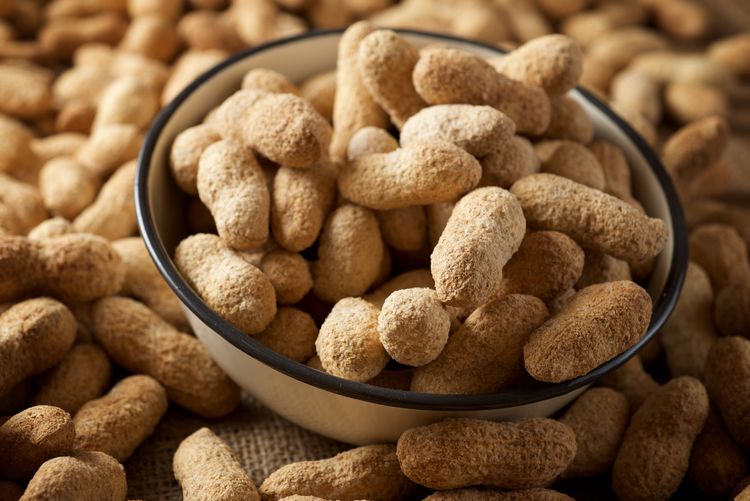
How many peanuts can your dog eat?
The amount of peanuts your dog can safely eat depends on his weight. Here is a guideline:
| Weight of the dog | Maximum recommended amount of peanuts |
|---|---|
| Up to 5 kg | 1-2 peanuts |
| 5-15 kg | 2-4 peanuts |
| 15-25 kg | 4-6 peanuts |
| Over 25 kg | 6-8 peanuts |
This table serves as a guide. Please note that your dog's individual tolerance and health conditions must be taken into account.
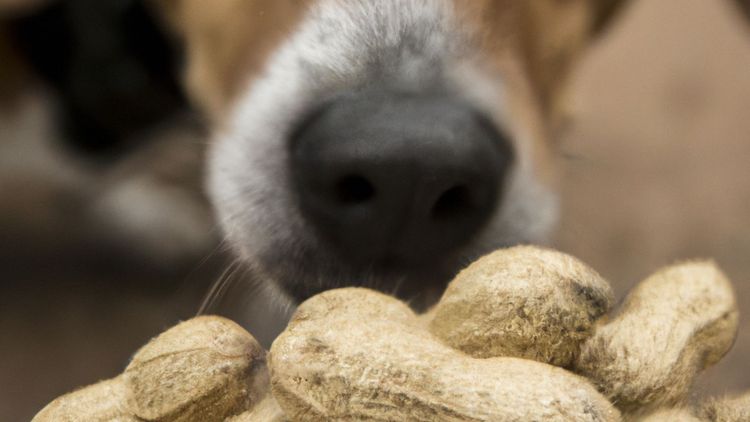
Peanuts can be a healthy addition to your dog's diet in moderation. It's important to choose them correctly (unsalted and unseasoned) and feed them in a safe amount for your dog's weight. Monitor your dog for possible allergic reactions or digestive problems after introducing peanuts into their diet. If unsure or if your dog has a negative reaction, consult a veterinarian.
